No WV Without Black History
“This celebration is an effort, plan and inspiration to make an impact. Our attempt to connect history and what is happening now.” This quote by Juneteenth Event Coordinator Ron English turned to be a reoccurring theme throughout the four day celebration.
When the Tuesday Morning Group (TMG) noticed the lack of acknowledgement given to African Americans for their donation to West Virginia History they felt entitled to change that. After hard work spearheaded by event coordinator Ron English, the Tuesday Morning Group organized a Juneteenth Celebration.
The four day ceremony began on Sunday, June 16 at the WV Cultural Center in the Grand Hall. WV Musical Hall of Fame Ensemble brought us selections like Grandma’s House by Bill Withers. After Crystal Good brought us a beautiful poem it was time for our keynote speaker David M. Fryson, Esq. Chief Diversity Officer, WVU. He urged us to remember our roots and that WV has always been at the forefront, reminding us that while we are celebrating 150 years of history it is relative young in terms of generations. We must continue our work for the following generations just like our ancestors did for us.
TMG transitioned the celebration to Mary C. Snow Elementary on the west side of Charleston for Monday’s ceremony. They looked at The Black Presence in Politics for Social Change. Booker T. served as an example along with J.R. Clifford of what one or a group can do when they dedicate themselves to a purpose.
After two successful nights it was time for our featured Scholars to take the stage in WVSU Davis Fine Arts Building. Dr. Ancella Bickley, Professor Emeritus of English spoke to us and recollected about what it is was like growing up in West Virginia over the years. Dr. Charles Ledbetter define “experiment” from two point of views in a presentation around the Tuskegee Experiment at State College.
To build on what was becoming a grand experience we welcomed from Carnegie Mellon University home, Dr. Joe William Trotter, Jr. He told us “hard times and hardships have been a theme in Black WV but so has our race overcoming”.
To conclude the Juneteenth Events there was a Revival Celebration at First Baptist Church where Arley Ray Johnson would be the speaker. The congregation was reminded that our community walls are down and gates consumed with fire as referenced from biblical text. We were offered ways of correcting this for the sake of upcoming generations like strengthening the church and what we have left.
The keynote followed this up by urging us to stand up, change it and rearrange it. Johnson told the congregation they must be willing to say if it is your will God I will endure. God is looking for people to sellout to move.
Event coordinator summed it up best by saying “this celebration is an effort, plan and inspiration to make an impact. Our way to connect history and happenings now.” 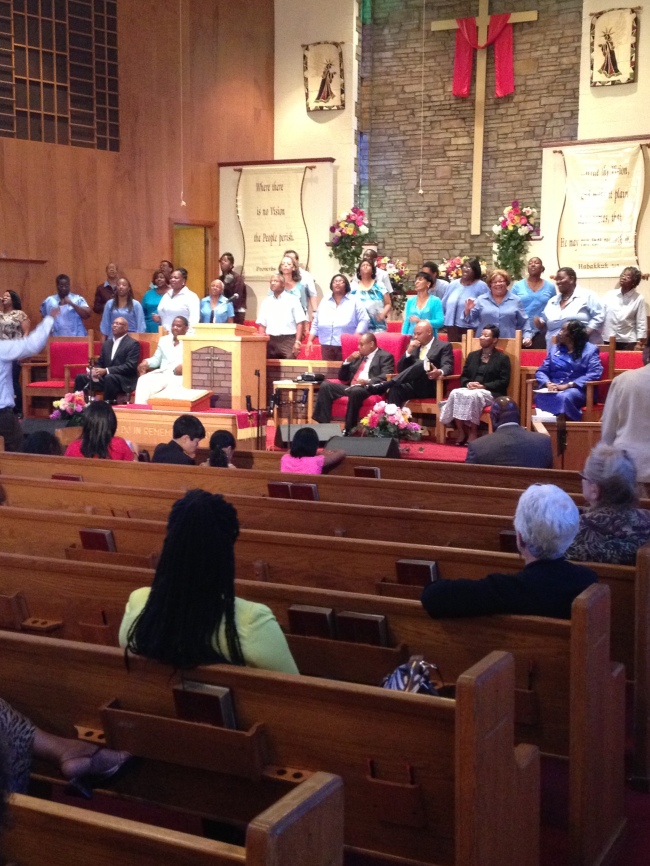 photo from Wednesday night celebration.
photo from Wednesday night celebration.
Before Tuskegee there was West Virginia State University
Established in 1890 under the Morril Act, there is no question West Virginia State Colored Institute now West Virginia State University is a pillar in the Kanawha community.
Tonight, June 18, as a part of Juneteenth celebration sponsored by Tuesday Morning Group this historical university will host an event focused on The Black Presence in Educational Achievement. There is no shortage of history from a local and national point of view when looking at this unique institution.
It was September 10, 1939, when West Virginia State College became the first of six HBCU’s to be authorized by the Civil Aeronautics Authority to establish an aviation program. The response of the Pittsburgh Courier newspaper to the announcement of West Virginia State’s selection was a story that began with “What we have just witnessed is a miracle…supplemented by the far-sighted genius of men of action, backed by visions which have come true.” This explains how big this actually was.
The first pilot training class at West Virginia State College began on November 14, 1939. By January 1941, West Virginia State College had graduated several classes from their aviation program and were actively competing for authority to offer a commercial pilot’s course for the graduates of the aviation programs at the six historically black colleges.
The construction of the Army Air Field at Tuskegee Institute began on June 23, 1941. The 99th Pursuit Squadron was assigned to conduct the training. The first cadet pilot training class consisted of 13 members that included George Roberts and Mac Ross from West Virginia State College.
In a July 24, 1943 letter to President Davis, Mr. Evans states, “It is interesting to note from the press releases from Tuskegee Army Air Field, the increasing number of West Virginia State College graduates and students who are (joining the Tuskegee Airmen).”
During the course of (World War II), the Tuskegee Airmen lost 66 pilots killed in the combat zone. They destroyed or damaged 409 German aircraft, over 950 units of ground transportation, and sank a destroyer with machine gun fire alone, which was a unique accomplishment. However, their most distinctive achievement was that not one friendly bomber was lost to enemy aircraft attacks during 200 escort missions. This success was unique because no other fighter unit with nearly as many missions could make the same claim.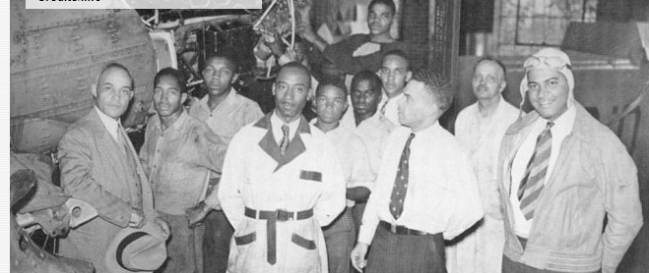
Consisting of many West Virginia State College graduates in command and support positions, the Tuskegee Airmen earned an outstanding record in and out of combat regardless of how it might be assessed. There are numerous examples like Tuskegee airmen that WVSU played a part in, including Carter G. Woodson, Booker T. Washington and Leon Sullivan who even has a dormitory named after him.
Pastor David M. Fryson Speaks at Juneteenth Kick-off
“When you are free you need to celebrate, but celebrate within who you are.” This was just one of the great points Pastor David M. Fryson left with us yesterday at our Juneteenth kickoff. Remember your beginnings and the generations before you and keep pressing forward for the ones who will come after.
Growing up on West Virginia State College Campus, Pastor Fryson’s resume’ is nothing short of commendable. He has worked with Leon Sullivan, held national office positions and is the current Chief Diversity Officer at WVU but he says his greatest accomplishment was convincing his wife to marry him. He credits all his achievements to his partnership with her.
Growing up, Pastor Fryson was raised by two great role models who in his speech yesterday and our interview prior to, made sure to acknowledge. His mother, Dorothy Fryson who lived to see 102 years of age and his father David Fryson, Sr. taught him to persevere and the value of hard work. In his speech he left us with a quote “get education, do not let it get you”. He went on to say it is great to seek knowledge but it is important to remember where you come from. Needless to say Pastor Fryson is exemplifying this.
Also, in an interview with Pastor Fryson when asked about growing up on WVSC campus and in the era he did, how did it affect him? His response was subtle and straight to the point. State was more than place of school it is life. This is a prime example of keeping your values and remembering where you come from.
Yesterday, Pastor Fryson left us with a good piece of knowledge. He said “Remember West Virginia at the forefront, before Black History Month Carter G. Woodson was in Huntington, WV. Before the Niagra Movement there was a Harper’s Ferry Movement and before Booker T. and Tuskeegee there was Booker T. in Malden, WV”. Pastor Fryson was remarkable and left us with a charge. There were generations before who paved the way for us and we must do the same for those coming. We are the American Dream so lets keep moving forward. 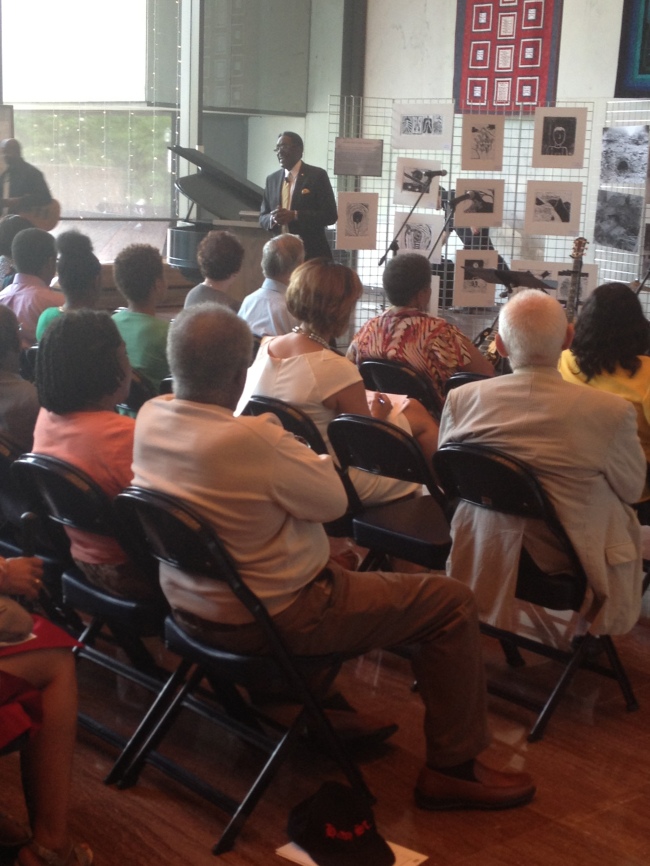
This is W.Va. history as it should be told
This is W.Va. history as it should be told
West Virginia will celebrate the 150th anniversary of its statehood on Thursday, June 20. The sesquicentennial deserves to be celebrated, for the state’s history is mighty unusual.
But it’s a much richer history than just those facts communicate. Thanks to the Tuesday Morning Group of Charleston, the history of the state’s African-American citizens will play a central role in celebrating the state’s history as well. Hit the link to read more
Tuesday Morning Group series celebrates African American influence
Tuesday Morning Group series celebrates African American influence
Most aspects of West Virginia’s sesquicentennial celebration are set for later this week, but one part has already begun.
A series of events celebrating the political, educational and cultural impact of African-Americans on West Virginia kicked off Sunday afternoon at the state Culture Center.
Charleston’s Tuesday Morning Group is the host of the Juneteeth Celebration continuing through Wednesday. The series is named for the holiday observed on June 19 known as Juneteenth. It marks the day in 1865 when slaves in Galveston, Texas, first learned of their emancipation. Click the link to read more.
“NO BLACK FOLKS, NO WV”
As West Virginia celebrates its 150th birthday, a series of events will highlight how African-American history is central to the state’s story. The Rev. Ron English of Charleston says the state might not even exist if everyone had accepted slavery. – See more at: http://publicnewsservice.org/index.php?/content/article/32971-1#sthash.mm203a3M.dpuf
It Took Awhile
On September 22, 1862, Abraham Lincoln issued the Emancipation Proclamation, but it was not enacted until 1863, the same year he issued a Presidential Proclamation that established the State of West Virginia. For Lincoln the major issue of the Civil War was preserving the Union. Ex-slave and abolitionist Frederick Douglass, who escaped the bondage of slavery to achieve status that granted him access to the President, constantly agitated Lincoln by insisting “Mr. President, this war is not about preserving the union, it’s about freeing the slaves”.
This alone serves to illustrate the role of slavery in the Sesquicentennial narrative. But there is another dimension of the story that connects the birthday of the State on June 20th with the celebration of Juneteenth on June 19th.
The Emancipation Proclamation had been issued January 1, 1863; but took two years for the news to reach slaves in Texas. Union General Gordon Granger pronounced freedom of enslaved blacks in Galveston on June 19, 1865. On February 3, 1865, West Virginia‘s first Governor, Arthur I. Boreman, signed an act which gave immediate emancipation to all slaves. West Virginia became the last slave state to enter the union and the first state to exit the Confederacy. It took a while before news of emancipation arrived in Texas just as it took awhile for slaves to become freed Mountaineers in the state of West Virginia.
The State Sesquicentennial agenda seemed to have overlooked these connections. Such an oversight though maybe not intentional still represents the marginal visibility of African Americans in the state’s population which tends to expand in proportion to the decline of the African American presence in the population of West Virginia – currently about 3.5%. Even if unintentional, this oversight in programming the State’s Sesquicentennial seemed a consequence in need of correction.
The Tuesday Morning Group (TMG) group, a collaboration of leaders from community based organizations in Charleston, is addressing this omission with a four day Juneteenth Celebration of the Black Presence in West Virginia. The observance of Juneteenth inspires resilience and pride among African Americans and has come to be recognized as a symbolic milestone in the American quest to form a more perfect union.
Identifying connections between events in 1865 and the state’s 150th birthday provokes inquiry on what kept hope alive for slaves in West Virginia and Texas when freedom was at hand but not in hand. Apparently, an enduring spirituality empowered their patience and persistence to keep “eyes on the prize” as emancipation was on the way.
In a moving speech given at this year’ celebration of the Martin Luther King holiday, Rabbi Victor Urecki told the story of Israel’s “feeling of freedom” on the night before their exit from slavery in Egypt. With loins girded, sandals worn and a staff in their hands, they waited for what had already arrived because “freedom begins not with the physical reality of freedom, but when people realize they can be free”.
The enduring message of the Juneteenth Celebration of the Black Presence in West Virginia in conjunction with the Sesquicentennial celebration transcends race, color and class. The audacity to hope is embedded in our nature and nourishes neurons in the biology of believers. Slaves in West Virginia and in Texas may have awakened to this awareness while waiting for an external act to confirm an internal reality. Hope is not a plan but it is a good thing, particularly in bondage situations where we discover the freedom we seek is already here.
Ron English, TMG Event Coordinator
6/12/13
West Virginia at 150: the African American Contribution
In conjunction with the celebration of West Virginia’s sesquicentennial, the Tuesday Morning Group, a faith-based collaborative network in Charleston, is sponsoring “The Black Presence in West Virginia” June 16-19 with four days of events in four locations throughout the Kanawha Valley.
Beginning with a program at West Virginia Cultural Center on Sunday, June 16, and concluding with a Juneteenth Spiritual Celebration on Wednesday, June 19, at the First Baptist Church of Charleston, the series of events will highlight the political, educational and cultural impact of African Americans on the state, according to the Rev. Ronald English, the project’s coordinator.
“We believe the celebration of our state’s 150th birthday is the perfect time to lift the veil and showcase the contributions African American have made to West Virginia,” the Rev. English said. “From Booker T. Washington to the Tuskegee airmen to current community leaders involved in ongoing struggles for justice, those contributions are a cause for celebration and reflection.”
“The Black Presence in West Virginia” opens with a program in the Great Hall of the West Virginia Cultural Center on Sunday, June 16, from 4 to 6 p.m. David M. Fryson, chief diversity officer for West Virginia University, will deliver the keynote address.
The program also will feature instrumental music by the West Virginia Hall of Fame, which will pay tribute to African American artists in the Hall of Fame; presentations about the Hawk’s Nest tragedy and the John Henry Folk Legend, as well as poetry by noted Affrilachian poet Crystal Good.
“The Black Presence in Politics for Social Change” will be the topic for a Monday, June 17, event at 6 p.m. at the Mary C. Snow Westside Elementary. Attorney Tom Rodd will speak about statehood, civil rights and the famed African American attorney J.R. Clifford. Attorney Larry L. Rowe will discuss Booker T. Washington’s legacy of self-help. The Rev. Matthew Watts will moderate the program and present profiles on local civil rights heroes. The program will conclude with a video clip from “The Teacher”, a documentary tribute on the life of educator Mary C. Snow.
West Virginia State University will host a Tuesday evening panel discussion of “The Black Presence in Educational Achievement,” in Davis Hall beginning at 7 p.m. Panel members include Dr. Ancella Bickley, former vice president of academic affairs at WVSU; Dr. Charles Ledbetter, vice chair of the West Virginia Archives and History Commission; Dr. Joe William Trotter, Jr., Giant Eagle professor of history and social justice at Carnegie Mellon University; and Ralph Miller, CEO of the Charleston Community and Family Development Corporation.
The activities will conclude with a spiritual celebration of Juneteenth, the day former slaves in Galveston, Texas, learned that they were emancipated. The event is co-sponsored by the Charleston Black Ministerial Alliance and will be held at First Baptist Church, beginning at 7 p.m. Featured speaker is Arley Ray Johnson, executive director of Advocates for the Other America.
All events will feature music and exhibits and are free to the public. For more information, visit us on Facebook – Tuesday Morning Group, on the website of the West Virginia Division of Culture and History at http://www.wvculture.org/wv150/juneteenth.html
For further information: email tuesmorninggroup@gmail.com.
Or contact:
Ron English, TMG Event Coordinator, (304-766-7295) nuronenghp03@aol.com
Deonta’ Landis, TMG Publicity agent, (919-808-0875) deonta@intuitivem.com.
John Henry: Folktale or Legend?
Some say folktale and others say legend but no matter your classification you can not discredit the value in the story of the larger than life figure, John Henry.
“John Henry”, the ballad, tells the story of a steel-driving man who died in his race against the steam drill at the Big Bend Tunnel, near Talcott, West Virginia, on the Chesapeake and Ohio Railroad around 1870. Some think John Henry was a real person, a large African American man who traveled along the Atlantic Coast “driving a steel hammer” for the railroad.
Construction of Great Bend Tunnel, under the Big Bend Mountain, began in 1870 and the lead contractor on the project was W.R. Johnson who paid some 800 to 1000 men and boys $1.25 a day.
As word quickly spread of this job opportunity, many ex-slaves and white Irish immigrants from the North Carolina and Virginia area came to Big Bend Mountain seeking employment. Included in this migration of men and their families according to records was an ex-slave named John Henry.
There has been interviews that says John Henry was a man of large stature. Some accounts and records show that because of his skill set and large size he earned $1.75/day instead of the usual $1.25/day.
Whether or not we believe the ballad of John Henry, we shall never know the truth as a fire destroyed C&O Headquarters in the Late 1800’s. Along with the headquarters, all documentation of Great Bend Tunnel’s costs, toll of lives, etc. went up in smoke.
We do know though, a letter from W.R. Johnson, president of a coal company at Smithers by the same name, wrote Mr. Johnson that his father (Davidson) was an eye witness to a famous race.
The letter in part read: “My grandfather, Stephen Davidson, who worked on Great Bend Tunnel the entire time it took to build, was present and stood by and watch John Henry accomplish this unbelievable act of beating the steam drill. And John Henry used two hammers; undoubtedly the handles were short. Grandfather told me many times over about this feat. He also told me that John Henry collapsed at the finish and was never able to work again. The information I am giving you came from an eyewitness.”
Whether this is true or not I will leave up to you the reader. So we ask John Henry, Folktale or Legend?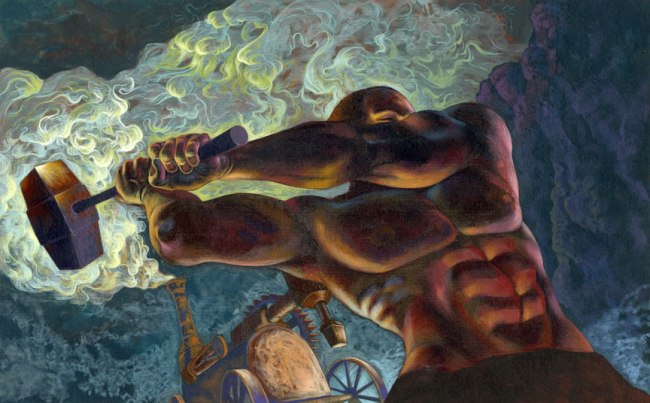
WEST VIRGINIA 150TH ANNIVERSARY: THE AFRICAN AMERICAN CONTRIBUTION
As West Virginia prepares to celebrate 150 years of Statehood The Tuesday Morning Group invites you to celebrate 150 years of Juneteenth. This year’s West Virginia Juneteenth celebrates the journey and achievement of African Americans in particular, the contributions made to West Virginia history.
Juneteenth festivities in Charleston will serve as a unique prelude to West Virginia’s 150th celebration by examining and remembering West Virginia personalities like John Henry, Booker T. Washington and Leon Sullivan.
Dates to Remember:
Sunday, June 16th, 4:00pm – 6:00pm will be our kick off at the West Virginia Cultural Center.
The opening program will be focused around Hawks Nest Tragedy and The Plight of African Americans in the Labor Movement. This event will also feature music and refreshments with a few surprises along the way.
Monday June 17th, 6:00pm at Mary C. Snow Elementary will examine “The African American Presence in Politics for Social Change through J. R. Clifford and other fighters for equality and social justice. Also, Harper’s Ferry: John Brown and Storer College will be amongst the topics.
Tuesday, June 18, 7:00pm at West Virginia State University, Dr. Ancella Bickley will speak about A Cultural and Educational Perspective on Black Presence in WV. This will be just one of the topics that will be visited along with Tuskegee Airmen and a special guest speaker.
Wednesday, June 19, 7:00pm at First Baptist Church, a Juneteenth Revival Celebration sponsored in cooperation with the Charleston Black Ministerial Alliance.
Tuesday Morning Group comes together each Tuesday of the month to look at the African American community and the issues around Charleston WV. We want to remember the donation made to West Virginian History by African Americans.
###
For information visit our page on the West Virginia Cultural Site. You can also find us on Facebook – Tuesday Morning Group. Be sure to like our page for Juneteenth surprises you do not want to miss. Or email us at tuesmorninggroup@gmail.com and we will respond promptly.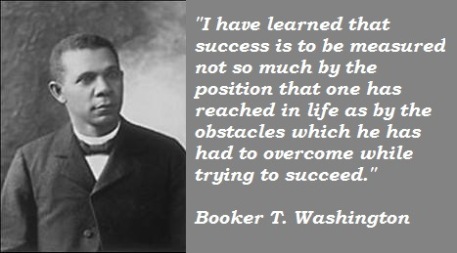
Recent Comments